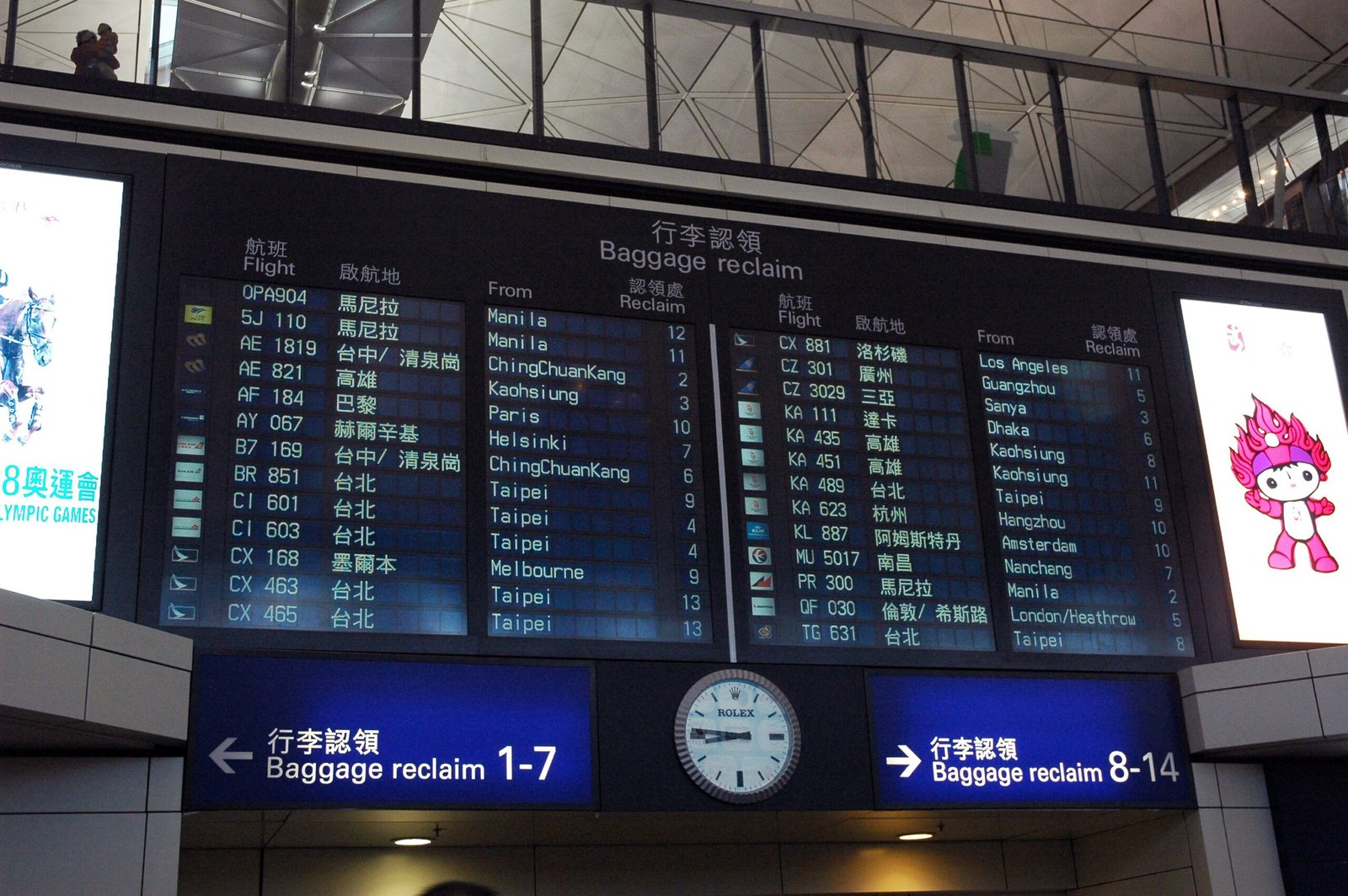
Introduction to Flight Delays and Compensation
Flight delays are an all-too-common occurrence in the world of air travel, impacting millions of passengers each year. These delays can stem from various factors, including weather conditions, technical malfunctions, air traffic control issues, or even operational inefficiencies within airlines. Regardless of the cause, the implications of a delayed flight extend beyond mere inconvenience; they can disrupt travel plans, lead to missed connections, and cause emotional distress for travelers. Understanding the roots of these delays is essential for passengers seeking to navigate their rights and options when faced with such challenges.
The European Union (EU) recognizes the difficulties flight delays can pose and has established regulations to safeguard passenger rights. Specifically, Regulation (EC) No. 261/2004 outlines the entitlement of passengers to claim compensation in the event of significant delays, cancellations, or denied boarding. Under this legislation, travelers may be eligible for compensation that varies based on the distance of the flight and the duration of the delay. It is crucial for passengers to comprehend their rights under this regulation, as well as similar protections provided by other jurisdictions, to ensure they can swiftly claim compensation when warranted.
As the travel landscape continues to evolve, awareness of these rights becomes increasingly important. Passengers should familiarize themselves with their entitlements and the methods to claim compensation following a flight delay. By understanding the circumstances that lead to flight disruptions and the legal frameworks available for recourse, travelers can better equip themselves to manage the stress associated with delays. This knowledge not only empowers passengers but also promotes accountability among airlines, ultimately fostering a fairer travel experience for all.
Understanding Your Rights as a Passenger
As an air traveler, it is essential to be informed about your rights, particularly in the unfortunate event of a flight delay. Several legal frameworks are designed to protect passengers, ensuring they receive fair treatment and compensation. Among these, the most notable is the EU Regulation 261/2004, which applies to passengers flying within the European Union or on flights operated by EU airlines. This regulation highlights the obligations of airlines concerning flight delays, cancellations, and denied boarding.
Under EU Regulation 261/2004, passengers may be eligible for compensation if their flight is delayed for more than three hours upon arrival, barring extraordinary circumstances such as severe weather or political unrest. Compensation can vary based on the flight distance, ranging from €250 for flights under 1,500 kilometers to €600 for flights exceeding 3,500 kilometers. Additionally, airlines are required to provide care and assistance, which includes meals, accommodation, and communication options while travelers await rebooking or the next available flight.
Outside the European Union, similar regulations exist, albeit with variations. For instance, in the United States, while there is no federal law mandating compensation for delayed flights, many airlines have their own policies that may offer compensatory measures for significant delays. In regions such as Canada and Australia, specific regulations also address passenger rights, stipulating compensation and assistance in the event of flight disruptions.
It is pertinent for travelers to familiarize themselves with both regional laws and the airline’s policies before embarking on their journey. By understanding their rights, passengers can effectively advocate for themselves in case of delays, ensuring that they receive the care and compensation they are entitled to as part of their travel experience.
Types of Delays That Qualify for Compensation
Flight delays can occur for a myriad of reasons, but not all delays are eligible for compensation. It is essential to understand the different categories of delays that may qualify for compensation. To begin with, a flight delay is typically defined as a situation where a scheduled flight does not depart or arrive at its designated time. Airlines are required to inform passengers of any delays and their expected duration, which plays a crucial role in determining eligibility for compensation.
According to various regulations, particularly within the European Union, a delay must usually be a minimum of three hours beyond the original scheduled time to qualify for compensation. Passengers affected by such delays may be entitled to financial compensation, provided that the delay was due to reasons that fall under the airline’s responsibility. However, it is crucial to distinguish between controllable and uncontrollable delays.
Controllable delays are typically events that the airline could have prevented, such as technical issues with the aircraft or staffing shortages. In such cases, passengers are more likely to receive compensation, as these delays are considered within the airline’s control. Conversely, uncontrollable delays arise from circumstances beyond the airline’s control, such as severe weather or air traffic control restrictions. These scenarios generally do not qualify for compensation, as airlines are not accountable for external factors that affect flight schedules.
Understanding which type of delay has occurred can significantly influence the likelihood of receiving compensation. Travelers should keep this information in mind when assessing their situation, as it highlights the importance of knowing their rights during flight disruptions.
Gathering Necessary Information and Documents
When it comes to claiming compensation for a flight delay, having the right information and documents is crucial for a successful and expedited process. Being organized can significantly enhance your chances of receiving compensation. Below is a checklist of essential items you should gather before filing your claim.
First and foremost, obtain your flight details. This includes the flight number, the date of travel, and the scheduled departure and arrival times. This information serves as the foundation of your claim, helping to identify the specific circumstances surrounding the delay.
Next, make sure to have your original boarding pass. This document is vital as it proves your presence on the flight, supporting your claim for compensation due to the delay. If your boarding pass is electronic, ensure it is accessible in your email or mobile device, as airlines often require proof of travel.
In addition to these crucial documents, it is advisable to retain receipts for any extra expenses incurred as a result of the flight delay. This may include food, accommodation, or transportation costs that you had to bear while waiting for your flight. Having these receipts will substantiate your claim and demonstrate the financial burden the delay caused you.
Furthermore, ensure that you collect any correspondence with the airline regarding the delay. This includes emails, chat transcripts, or ticket numbers from customer service interactions. Such documentation can provide context and bolster your case, demonstrating that you have actively communicated with the airline regarding your situation.
Through the careful collection of these documents and details, you create a comprehensive case that can significantly streamline the claims process, thus facilitating a quicker resolution to your compensation claim.
How to File a Compensation Claim
Filing a compensation claim for a flight delay can be a daunting process, but following a systematic approach can facilitate a quicker resolution. The first step is to gather all pertinent information regarding your flight. This includes your flight number, date of travel, and the details of the delay. Keep any documentation, such as boarding passes and tickets, for reference as these may be required during the claims process.
Next, identify the appropriate contact information for your airline. Most airlines have dedicated customer service numbers or online portals for handling compensation claims. Visit the airline’s official website to locate the claims section, where you may find specific guidelines outlined for filing your complaint. Ensure that you have the airline’s contact information readily available; this may include an email address or customer support chat service.
When drafting your complaint, be clear and concise. Start by stating your flight details and the nature of the delay. Express your disappointment and explicitly request compensation, referencing applicable policies, such as EU regulations or domestic laws, that support your claim. Remember to mention any additional expenses incurred due to the delay, such as meals or accommodation, as these can also be claimed. Providing a well-structured complaint will enhance the chances of a favorable outcome.
In addition to direct contact, consider utilizing various channels to submit your claim. Most airlines offer online claim forms, which may be quicker than traditional methods. If you do not receive a timely response, follow up with the airline via social media or phone calls. Keeping a record of all communications and responses will be helpful in case further escalation is required.
What Happens After You Submit Your Claim?
Upon submission of your compensation claim for a flight delay, the airline initiates a review process. Typically, airlines are expected to acknowledge receipt of your claim within a few days. However, the timeline for a detailed response can vary significantly between airlines and may take anywhere from a few weeks to several months. It is imperative to check the airline’s specific policies regarding claim processing timelines, as these can differ based on individual circumstances.
During the evaluation period, the airline will assess various aspects of your claim, such as the cause of the delay, your flight details, and your supporting documentation. It is not uncommon for airlines to face backlogs, especially during peak travel seasons, which might elongate the review duration. In cases where further information is needed, the airline may reach out to you for additional documentation or clarification, potentially extending the timeline further.
If you do not hear back from the airline within the outlined timeframe, it is appropriate to follow up. This can be done through customer service channels, such as email or phone. When reaching out, ensure you have your claim reference number handy for efficient communication. Persistently following up may expedite the review process and demonstrate your commitment to receiving due compensation.
The outcomes of your claim can vary considerably. You may receive full or partial compensation, or, in some instances, your claim might be rejected if the airline determines that the circumstances causing the delay were beyond their control. In cases of rejection, airlines are obligated to provide a reason, allowing you to decide on the next steps, which could include appealing the decision or seeking further assistance from a regulatory body.
Handling Claim Denials and Appeals
Receiving a denial for your flight compensation claim can be disheartening, but it is essential to know that this situation is not the end of the road. Understanding the reasons behind the denial can help you prepare an effective appeal. Frequently, claims are denied due to insufficient evidence, missing documentation, or failure to meet specific eligibility criteria set by the airline. Start by carefully reviewing the airline’s response, noting any sections that indicate what was lacking in your initial submission.
The first step in handling a claim denial is to gather additional evidence that supports your case for compensation. This could include documents such as boarding passes, receipts, and any communication with the airline regarding your flight status. If your claim was rejected due to what the airline considered a “natural event,” be sure to check if the incident falls under genuinely uncontrollable circumstances, as these can often be contested.
Once you have accumulated the necessary documentation, you can re-submit your claim. When doing so, include a cover letter that outlines why you believe the decision should be overturned and attach the relevant evidence. It is advantageous to present your case clearly and concisely, avoiding any emotive language and focusing on factual data.
If your appeal still results in a denial, you may consider external help as a viable option. There are numerous consumer advocacy groups dedicated to assisting passengers in flight compensation claims. These organizations have the expertise to guide you through the appeals process or even take on your case if needed. In some circumstances, seeking legal advice can also bolster your claim, especially if the airline has consistently denied rightful compensation without just cause. Remember, persistence is vital in these matters, and ensuring that you are well-informed can significantly enhance your chances of a favorable outcome.
Tips for Speeding Up Your Claim Process
Experiencing a flight delay can be frustrating, but knowing how to expedite your compensation claim can alleviate some of that stress. The first step is to remain organized. As soon as an issue arises, begin documenting relevant details such as flight numbers, departure and arrival times, and any correspondence with airline staff. This meticulous record-keeping will prove essential in supporting your claim, lending credibility to your request for compensation.
Familiarizing yourself with your rights as a passenger is crucial for a successful claim process. Depending on the region and airline, different regulations may entitle you to specific compensation for delayed flights. Inform yourself about these regulations, such as the EU261 rule in Europe, which outlines the rights of passengers in cases of flight delays or cancellations. Understanding these rights will empower you to advocate more effectively on your behalf.
Another effective way to expedite the compensation process is by utilizing compensation claim services. These specialized companies are equipped with the knowledge and experience to navigate the complexities of airline claims. They can evaluate your eligibility and manage the intricate paperwork typically involved, allowing you to focus on your travel plans.
Persistence is key when seeking compensation. Stay in touch with the airline or claim service, and regularly follow up on the status of your application. Establish a timeline for these communications to ensure that your claim does not stall. Lastly, maintaining a polite but firm tone can often elicit better responses from airline representatives, helping to accelerate your claim’s resolution.
By implementing these strategies—staying organized, understanding your rights, utilizing expert services, and being persistent—you can significantly improve the chances of receiving your flight delay compensation swiftly and efficiently.
Conclusion: Staying Informed and Prepared
The experience of flight delays can be distressing and inconvenient for travelers. However, understanding your rights regarding compensation is crucial in navigating this often frustrating situation. As discussed throughout the blog, being aware of the regulations that govern flight delays, such as the EU Regulation 261/2004 or similar laws in different jurisdictions, equips you with the knowledge necessary to seek compensation effectively. This understanding empowers you to act promptly when your flight is delayed, ensuring that you are not left in the dark about your entitlements.
Moreover, maintaining an up-to-date awareness of your airline’s policies and the specific circumstances that qualify for compensation can significantly enhance your chances of a successful claim. Each airline may have distinct criteria, so familiarity with these details is key. Keeping copies of essential documentation, such as boarding passes and receipts, further supports your case when you file a claim.
Preparedness plays an equally vital role in this process. Planning for potential disruptions by knowing the compensation process allows you to act swiftly when necessary. This includes understanding the channels through which compensation claims can be submitted and what information is required to substantiate your request. It is also beneficial to stay informed about any changes in regulations or policies that may affect your rights as a passenger.
In conclusion, being informed and prepared regarding flight delays not only enhances your experience as a traveler but also increases the likelihood of receiving the compensation to which you are entitled. Ultimately, knowledge is your best ally in claiming compensation quickly and effectively when faced with a delayed flight.






